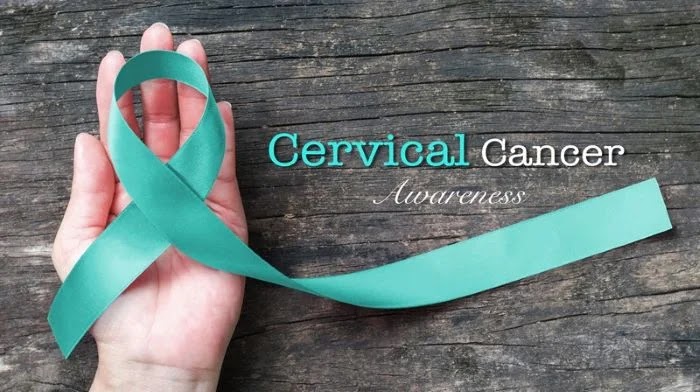Understanding Pancreatic Cancer: Causes, Symptoms, Diagnosis, Treatment, and Prevention
Understanding Pancreatic Cancer: Causes, Symptoms, Diagnosis, Treatment, and Prevention
Written by: Muhammad Nadeem Khan
Pancreatic cancer is a devastating disease that affects thousands of people worldwide each year. It is known for its aggressive nature and low survival rates, making it one of the most challenging cancers to treat. Pancreatic cancer is a formidable adversary, often diagnosed at advanced stages and associated with poor prognosis. By understanding the nuances of this disease, individuals can better navigate prevention, early detection, and treatment strategies.
In this comprehensive guide, we will delve into the intricacies of pancreatic cancer, exploring its causes, symptoms, diagnosis, treatment options, and prevention strategies.
 |
| (Stock Photo: Pancreas) |
Understanding: What is a Pancreas
The pancreas is a vital organ located deep within the abdomen, behind the stomach. It plays a crucial role in digestion and blood sugar regulation by producing digestive enzymes and insulin. When cells in the pancreas begin to grow uncontrollably, they can form a malignant tumor, leading to pancreatic cancer.
Causes of Pancreatic Cancer
While the exact cause of pancreatic cancer remains elusive, several risk factors have been identified. These include:
1. Smoking: Cigarette smoking is a significant risk factor for pancreatic cancer, with smokers being two to three times more likely to develop the disease than non-smokers.
2. Age: Pancreatic cancer is more common in older adults, with the majority of cases diagnosed after the age of 65.
3. Family History: Individuals with a family history of pancreatic cancer or certain genetic syndromes, such as hereditary pancreatitis, are at higher risk.
4. Obesity: Obesity has been linked to an increased risk of pancreatic cancer, highlighting the importance of maintaining a healthy weight.
5. Chronic Pancreatitis: Long-term inflammation of the pancreas, often due to excessive alcohol consumption or other factors, can raise the risk of developing pancreatic cancer.
6. Diabetes: Both type 1 and type 2 diabetes have been associated with a higher risk of pancreatic cancer.
 |
| (Stock Photo: Pancreatic Cancer) |
Symptoms of Pancreatic Cancer
Pancreatic cancer often does not cause noticeable symptoms in its early stages, making it difficult to diagnose. However, as the disease progresses, the following symptoms may occur:
1. Jaundice: Yellowing of the skin and eyes due to blockage of the bile duct by the tumor.
2. Abdominal Pain: Dull, aching pain in the abdomen or back, which may worsen after eating or lying down.
3. Unexplained Weight Loss: Significant weight loss without dieting or exercise.
4. Loss of Appetite: Decreased appetite and feelings of fullness even after eating small amounts of food.
5. Changes in Bowel Habits: Such as diarrhea, constipation, or pale stools.
6. New-Onset Diabetes: In some cases, Pancreatic cancer can cause diabetes or worsen existing diabetes.
7. Digestive problems: Including nausea, vomiting, and difficulty digesting fatty foods.
Diagnosis of Pancreatic Cancer
Diagnosing pancreatic cancer typically involves a combination of medical history review, physical examination, and diagnostic tests. These may include:
1. Imaging Tests: Such as Computed Tomography (CT) scans, Magnetic Resonance Imaging (MRI) scans, or Ultrasound, to visualize the pancreas and detect any abnormalities.
2. Endoscopic Ultrasound (EUS): A procedure in which a thin, flexible tube with an ultrasound probe is inserted into the digestive tract to obtain detailed images of the pancreas.
3. Biopsy: Removal of a small sample of pancreatic tissue for examination under a microscope to confirm the presence of cancer cells.
4. Blood Tests: Including tumor markers such as CA 19-9, which may be elevated in individuals with pancreatic cancer.
Treatment of Pancreatic Cancer
Treatment options for pancreatic cancer depend on the stage of the disease, as well as the patient's overall health and preferences. They may include:
1. Surgery: Surgical removal of the tumor is often the preferred treatment for early-stage pancreatic cancer. This may involve a Whipple procedure (pancreaticoduodenectomy), distal pancreatectomy, or total pancreatectomy.
2. Chemotherapy: Chemotherapy drugs may be used before or after surgery to shrink the tumor, kill cancer cells, and prevent recurrence.
3. Radiation Therapy: High-energy radiation beams are targeted at the tumor to destroy cancer cells and relieve symptoms.
4. Targeted Therapy: Drugs that specifically target cancer cells or their molecular pathways may be used in combination with chemotherapy to improve treatment outcomes.
5. Immunotherapy: Immunotherapy drugs help the immune system recognize and attack cancer cells, potentially enhancing the effectiveness of other treatments.
6. Palliative Care: Palliative care focuses on relieving symptoms and improving the quality of life for patients with advanced pancreatic cancer.
Prognosis and Survival Rates
Pancreatic cancer has one of the lowest survival rates of any cancer, largely due to its aggressive nature and late-stage diagnosis. According to the American Cancer Society, the overall five-year survival rate for pancreatic cancer is around 10%, with survival rates varying depending on the stage of the disease at diagnosis.
Prevention of Pancreatic Cancer
While it may not be possible to prevent pancreatic cancer entirely, certain lifestyle modifications and risk reduction strategies may help lower the risk:
1. Quit Smoking: Smoking cessation is one of the most effective ways to reduce the risk of pancreatic cancer.
2. Maintain a Healthy Weight: Adopting a balanced diet and engaging in regular physical activity can help prevent obesity, a known risk factor for pancreatic cancer.
3. Limit Alcohol Consumption: Excessive alcohol consumption can increase the risk of chronic pancreatitis, a risk factor for pancreatic cancer.
4. Eat a Healthy Diet: Emphasize a diet rich in fruits, vegetables, whole grains, and lean proteins, while limiting intake of red and processed meats.
5. Manage Diabetes: Proper management of diabetes, including medication adherence and blood sugar control, may help reduce the risk of pancreatic cancer.
6. Be Aware of Family History: Individuals with a family history of pancreatic cancer or certain genetic syndromes may benefit from genetic counseling and screening.
 |
| (Stock Photo: Pancreatic Cancer) |
Impact on Quality of Life
Pancreatic cancer significantly affects the quality of life of patients, often leading to cognitive difficulties, mental changes, and challenges in coping with the disease[3]. Research has shown that the health-related quality of life of patients with pancreatic cancer is low, emphasizing the need for further research to improve the situation in this area[3]. Patients with pancreatic cancer often experience waves of fear, sadness, and anger, which can take a toll on their body, mind, and spirit[5].
Pancreatic cancer remains a formidable challenge in the field of oncology, with limited treatment options and poor survival rates. However, ongoing research efforts aimed at understanding the underlying mechanisms of the disease and developing novel therapeutic approaches offer hope for improved outcomes in the future. In the meantime, early detection, prompt diagnosis, and timely intervention are critical in improving the prognosis for individuals affected by pancreatic cancer. By raising awareness, promoting risk reduction strategies, and supporting research initiatives, we can work together to combat this devastating disease and improve the lives of patients and their families.
On the day of 13th February 2016, I lost my father 'Raja Mohammad Asghar' who died due to Pancreatic Cancer, diagnosed lately (at stage 4) and didn't survive during treatment under the best medication facility. He was a renowned Journalist in Pakistan, and has served his services to different news sectors including REUTERS, APP, and Dawn newspaper. I am dedicating this article to my late father and to those who have lost their lives because of this disease.
Frequently Asked Questions (FAQs)
Q1: Can pancreatic cancer be prevented?
A1: While it may not be entirely preventable, certain lifestyle modifications such as quitting smoking, maintaining a healthy weight, limiting alcohol consumption, and adopting a balanced diet rich in fruits and vegetables may help reduce the risk of pancreatic cancer.
Q2: Is pancreatic cancer hereditary?
A2: While most cases of pancreatic cancer are sporadic, individuals with a family history of the disease or certain genetic syndromes may have an increased risk. Genetic counseling and screening may be recommended for those with a family history of pancreatic cancer.
Q3: What are the treatment options for advanced pancreatic cancer?
A3: Treatment options for advanced pancreatic cancer may include chemotherapy, targeted therapy, radiation therapy, immunotherapy, and palliative care to alleviate symptoms and improve quality of life.
Q4: How can pancreatic cancer be detected early?
A4: Early detection of pancreatic cancer is challenging due to the lack of specific symptoms in the early stages. However, individuals at high risk, such as those with a family history or certain genetic syndromes, may benefit from regular screening tests such as imaging studies and blood tests.
Citations:
[1] https://my.clevelandclinic.org/health/diseases/15806-pancreatic-cancer
[2] https://apc.amegroups.org/pages/view/guidelines-for-authors
[3] https://www.ncbi.nlm.nih.gov/pmc/articles/PMC10048931/
[4] https://www.ncbi.nlm.nih.gov/pmc/articles/PMC6250924/
[5] https://pancan.org/news/maintaining-hope-one-page-time/
[6] https://www.mayoclinic.org/diseases-conditions/pancreatic-cancer/symptoms-causes/syc-20355421
[7] https://www.cancer.gov/types/pancreatic/patient/pancreatic-treatment-pdq


Comments
Post a Comment